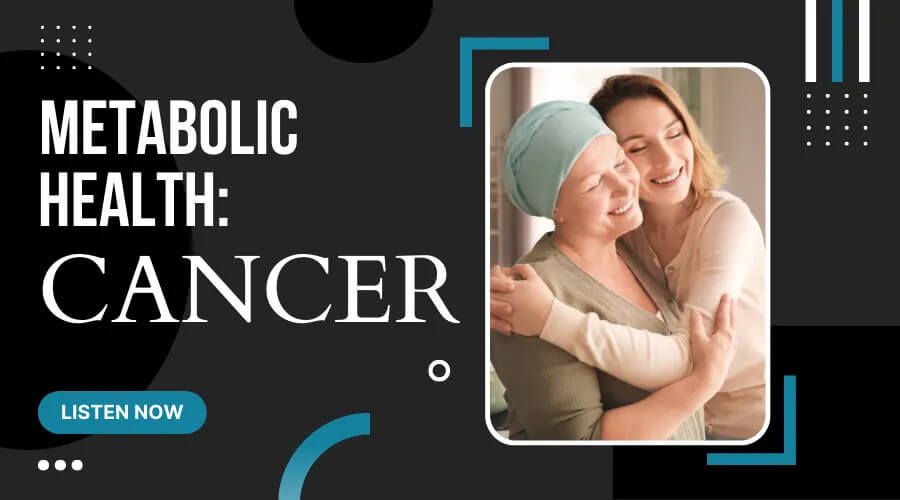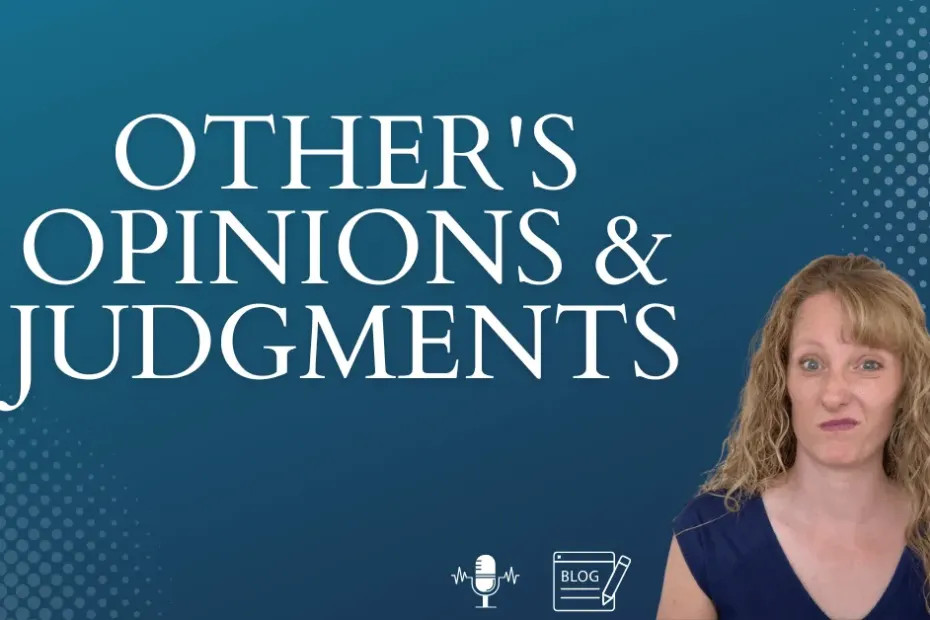
Today we are talking all about cancer. This one generally catches people off guard because most people think cancer is either genetic, toxin-related, or totally random. And while genetics and toxins do play a role – cancer is a metabolic disease! It’s definitely not totally random!
What is Cancer?
Let’s back up and talk more generally about cancer first, then we’ll come back to the metabolic side of things and some strategies you can use to boost your immune functioning and reduce your risk of cancer growth.
Cancer is the second leading cause of death in the US, though it’s striving to overtake heart disease in the number 1 spot. Cancer can develop in any tissue of the body with breast and prostate leading the way in women and men respectively and lung cancer being the most deadly.
Cancer is the uncontrolled division of abnormal cells and can include the spread of those cells throughout the body. There are often genetic mutations included, but when scientists looked closer, most cancers aren’t truly genetic in origin. Sure there are some mutations that many of us carry that put us at increased risk (not guaranteed to get cancer), but there are hundreds or even thousands of mutations that can occur within a single tumor (that weren’t necessarily in the original healthy cells). This also means there won’t be a genetic answer to cancer. Newer research is finding that all cancers are in fact a disease of energy metabolism – or metabolic disease!
Cancer is a Metabolic Disease
All cancers, regardless of tissue type or location in the body, use fermentation for energy. This is an anaerobic process (meaning it doesn’t use oxygen), unlike the majority of our cells that use oxidative phosphorylation for energy (meaning oxygen is used). This fermentation pathway uses sugar as the primary fuel. And this is where nutrition can play a major role in helping cancer grow or helping your body to fight off cancer growth. If you read any scientific literature or books on the topic, you’ll often hear this referred to as the “Warburg effect” after Dr. Otto Warburg who identified this pathway in the 1920s – over 100 years ago!
Side note – this is exactly how PET scans work. If you’ve ever known anyone undergoing cancer treatment or being monitored during remission, you’ve likely heard of people undergoing PET scans to detect active cancers. The way a PET scan works is by giving the patient radioactively labeled sugar that can be tracked through the body. Where the radioactivity accumulates, cancer is present – sucking up all of that sugar for its fermentation process. Cancer thrives on sugar.
So if cancer thrives on sugar, wouldn’t it seem logical that reducing or eliminating as much sugar as possible would help reduce cancer’s ability to grow? I think so! Let’s take it a bit further though…
Cancer and Insulin Resistance
We’ve talked a lot on this show about insulin resistance and the fact that it primarily develops due to the consumption of high amounts of carbohydrates over a long period of time. Insulin resistance also causes high levels of insulin to be present. And insulin is a growth and storage hormone – that drives cancer cells to grow faster. So if you’re consuming high levels of carbohydrates (and therefore have high amounts of sugar in your blood), you will have both the food cancer thrives on AND the hormone that makes it grow faster! A double whammy! And statistics prove that regardless of body weight, people with high insulin levels have twice the likelihood of dying from cancer.
Let’s talk about the link between a few of the most relevant cancers and insulin resistance.
In breast cancer, women with the highest fasting insulin levels succumb to the worst breast cancer outcomes. This is because the average breast cancer cell has 6x the amount of insulin receptors that the noncancerous breast cancer tissue. This means the cancer cells are able to take up more of this powerful growth factor than surrounding tissues. Researchers have consistently found that controlling insulin resistance helps control breast cancer.
In prostate cancer, men with insulin resistance are 2-3 times more likely to have an enlarged prostate. In fact, men with a high degree of insulin resistance may be up to 250% more likely to develop prostate cancer than insulin-sensitive men of the same age, race, and body weight. Again these cancer cells have increased insulin receptor cells, just like breast cancer tissue, increasing the growth signals for cancer.
Colorectal cancers are another common cancer with a major connection to insulin resistance and insulin resistance makes this type of cancer 3 times more deadly.
Insulin resistance is the reason why so many cancers seem to come out of nowhere. Insulin resistance doesn’t have overt symptoms of its own but is a component of many other disorders that do have symptoms – like obesity, diabetes, hypertension, migraines, cognitive decline, and infertility. It silently develops over decades, all the while increasing your risk of cancer as well.
What can we do to prevent cancer and/or increase the likelihood of survival with cancer?
Nutrition is foundational to ALL of health. We cannot ignore the need for a quality, nutrient-dense diet. Within this category, we want to restore insulin sensitivity. This means we need to eliminate simple carbohydrates (like sweets and sweet beverages). We also need to reduce carbohydrate intake. How much depends a lot on YOU – how insulin resistant are you? Do you have a diagnosed metabolic disorder? Are you overweight or obese? What else is going on with your health, symptoms, and history?
This is why I always recommend you work with a functionally trained practitioner, like me, who can help you assess all of these factors and help you implement a healing protocol. Within the healthy diet, we also need to ensure you’re getting adequate quality proteins and healthy fats, not taking in excess toxins or artificial ingredients.
Fasting is another tremendously valuable tactic. This one sounds counter to what you may hear from conventional medical models that will tell you that you cannot afford to lose any weight when fighting cancer, so you should eat anything and everything you can – even milkshakes – to maintain weight. They say this because when going through traditional chemo and/or radiation treatments, many patients lose excessive amounts of weight including lean muscle and bone tissues, a process called cachexia. This is a metabolic – not a calorie-driven process. Someone already in a cachexic state will most likely not respond to simply increasing calories. This is because the process of cachexia slows down protein synthesis and increases protein breakdown. This is why quality protein intake is so vital.
Following the standard advice to simply eat more of anything you can, including milkshakes, will increase blood sugar and insulin, driving inflammation and cancer growth, while not providing the building blocks you really need. A low glycemic, ketogenic diet will instead reduce tumor growth and proliferation and prevent cachexia.
So how does fasting play in? Weight loss can be harmful if due to cachexia, but it can also be therapeutic and therefore helpful when done correctly. Fasting can increase the likelihood of weight loss being therapeutic by further decreasing insulin, reducing inflammation, allowing the body to repair and restore, and helping everything reset and rest. It sounds counterintuitive, but fasting actually preserves muscle tissue! We can determine if weight loss is healthy or cachexic through proper laboratory testing.
Functional Testing
Testing is vital to really understand all of the imbalances that are playing into your metabolic dysfunction. This type of testing can tell us if you have nutrient deficiencies, inflammation, chronic infections, toxins, detoxification issues, digestive issues, or immune system problems that increase your risks of being able to effectively fight off cancers that develop. Cancers develop in all of us all the time – but healthy bodies can effectively kill them off when they are only a few cells in size. If you have any of these kinds of imbalances, you might not be able to detect or fight the development quickly enough before it grows out of control.
Beyond nutrition and testing, we also need to optimize your stress handling, sleep quality and quantity, overall toxin and trauma exposure, and ensure you’re getting adequate exercise.
And lastly, I’ll mention traumas. Numerous studies have shown that ALL chronic diseases are worsened and often not well treated when the patient has unresolved trauma in their life – past or present. This is a critical step that isn’t often spoken about – but you will NOT heal properly if you haven’t dealt with those demons. I urge you, even if past issues don’t seem to bother you daily – if you never fully dealt with them, they are holding you back and potentially causing disease. Deal with them!
Take the ACE quiz – simply do an internet search for the Adverse Childhood Events (ACE) quiz and see how many events you went through as a child that could be affecting your health now. Deal with any that you see on that list with a qualified mental health professional. I’m a big fan of EMDR training because it requires less verbalization of the issue. I always struggled to put things into words, but EMDR made a tremendous difference for me.
Treatment Options
If you have cancer or a history of cancer, just know that there are TONS of treatment options. These dietary approaches aren’t necessarily going to cure you – though they can help your body fight cancer naturally (and there are case studies of full remission through diet and lifestyle only). These can also be tremendously valuable in more conventional treatments and even other holistic or natural treatments. I highly encourage you to talk to a lot of different professionals about various methods that you can choose from. It’s YOUR journey – don’t let a practitioner make the decisions for you. Ask questions. Get second opinions. Get third opinions. Read books. Listen to podcasts. Work with a TEAM! Choose what’s best for YOU and implement these diet and lifestyle strategies to help you feel your best throughout the process.
Stop Fueling Cancer
Cancer is a big, scary topic that has touched nearly every one of us. Sadly, the conventional medical model provides some frankly dangerous advice. I personally see this poor advice being given to my own family members undergoing cancer treatment. I was recently at the hospital with a family member who was having surgery to replace a bile duct stent related to a pancreatic tumor he has. Following the surgery, the medical staff gave him jello and soda to ease him back into eating food. This patient currently has wildly high blood sugar levels and is taking insulin because of the pancreatic tumor. So they gave SUGAR – pure sugar to a man in his 80s with extremely elevated blood sugars AND active cancer, while also on chemo for cancer. Literally fueling the fire of cancer right before my eyes. It breaks my heart. But some people aren’t ready to hear it or want to question conventional medical providers.
I know that isn’t you – or you wouldn’t be here. And for that I thank you. Thank you for helping to spread this valuable information. If we can help even one person improve their life, it’s all worth it.
If you’d like to learn more about cancer and its metabolic dysfunctions, I highly recommend you check out three experts:
- Dr. Nasha Winters – who also wrote the book called the Metabolic Approach to Cancer
- Dr. Jason Fung – who wrote several books on fasting and metabolic dysfunctions including The Cancer Code
- Dr. Thomas Seyfried – who wrote a very technical book called Cancer as a Metabolic Disease.
All three also have numerous videos online that walk through various aspects of these principles.





















0 Comments